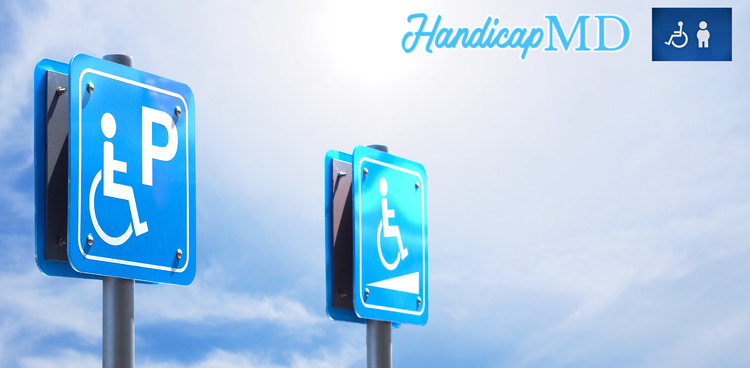
Unveiling the Rules and Regulations of Using a Handicap Placard in Illinois
Introduction
If you or someone you know has a disability that affects mobility, understanding the rules and regulations of using a disability tag in Illinois is crucial. Having a disability tag provides various parking privileges, making daily activities more accessible and convenient. In this article, we will dive deep into the regulations surrounding disability tags in Illinois, including eligibility criteria, the application process, parking rules, and frequently asked questions. Let's explore how to navigate the system effectively and utilize the benefits of a handicap tag.
Eligibility for a Handicap Placard
To qualify for a handicap tag in Illinois, individuals must meet specific criteria. The eligibility is based on various factors, such as:
- Physical Disability: Individuals with conditions that significantly impair mobility, including difficulty walking, utilizing mobility aids, or using prosthetic devices, may be eligible.
- Visual Impairment: Those with visual impairments that restrict their ability to walk or navigate may qualify for a handicap tag.
- Cardiovascular Conditions: Individuals with cardiovascular conditions that limit their ability to walk long distances or pose a risk to their health may be eligible.
- Respiratory Conditions: Certain respiratory conditions that impact mobility, such as severe chronic obstructive pulmonary disease (COPD) or pulmonary hypertension, may make individuals eligible for a tag .
- Temporary Disabilities: Temporary disabilities, such as recovering from surgery or injuries, may also warrant a handicap permit for the duration of the disability.

Applying for a disability tag in Illinois
Applying for a disability tag in Illinois is a straightforward process. Follow these steps to obtain your tag :
- Obtain the Application: Download the "Persons with Disabilities Certification for Plates/Placard" form from the Illinois Secretary of State website[^1^]. Alternatively, you can visit your local Secretary of State office to pick up a physical copy of the application.
- Complete the Application: Provide all necessary personal information, including your name, address, and details about your disability.
- Medical Certification: Have a licensed physician, advanced practice nurse, or physician assistant complete and sign the medical certification section of the application form. Ensure that the medical professional's information and credentials are accurately provided.
- Submit the Application: Submit the completed application form by mail or in person at a local Secretary of State office. Include any required fees, such as a replacement fee for lost placards.
- Wait for Approval: Once your application is received, it will be reviewed for eligibility. If approved, you will receive your disabled placard by mail.
Note: It is essential to provide accurate information and complete the application thoroughly to avoid delays in processing your request.
Parking Privileges with a Handicap Placard
Using a disability tag grants various parking privileges. These privileges aim to provide accessible parking options and accommodate individuals with disabilities. Here are some key points to keep in mind:
- Accessible Parking Spaces: disability tag holders are permitted to park in designated accessible parking spaces. These spaces are marked with the International Symbol of Access and are located close to building entrances.
- Time Limits: Handicap placard holders are typically exempt from time limits in parking areas. This allows individuals with disabilities ample time to complete their tasks or appointments without worrying about exceeding the allotted time.
- Metered Parking: Handicap tag holders are often exempt from paying parking meters. However, it is important to note that this exemption may vary depending on local regulations. Always check the specific guidelines for the area you are parking in to avoid any violations.
- Enforcement: Violations of handicap parking regulations are taken seriously. Unauthorized use of a handicap parking spot or misuse of a handicap sign can result in fines and penalties.
Remember, the privilege of using a disability tag comes with responsibilities. Always use the tag ethically and ensure that it is displayed properly when utilizing accessible parking spaces.
Requirements for a Handicap Placard in Illinois
To obtain a disability tag in Illinois, certain requirements must be met. These requirements ensure that the tags are provided to individuals who genuinely need them. Here are the key requirements:
Medical Certification: A licensed physician, advanced practice nurse, or physician assistant must certify the applicant's disability. The medical professional must complete the relevant section of the application form, confirming the nature and extent of the disability.
Disability Type: The disability must fall under one of the categories recognized by the Secretary of State's office. These categories include physical disabilities, visual impairments, cardiovascular conditions, and respiratory conditions, among others. The disability should significantly affect the individual's mobility and ability to perform daily activities.
Permanent or Temporary Disability: Handicap placards are available for both permanent and temporary disabilities. Permanent placards are valid for four years, while temporary placards can be issued for a maximum of six months, as determined by the certifying medical professional.
Residency: The applicant must be a resident of the state to qualify for a handicap placard. Proof of residency, such as a driver's license or state identification card, may be required during the application process.
Application Fee: There is an application fee for obtaining a handicap placard. The fee amount may vary, so it is essential to check the current fee structure on the Secretary of State's website or contact the local Secretary of State office for accurate information.
It is important to note that the requirements may be subject to change or additional documentation may be requested during the application process. Applicants should review the most up-to-date guidelines provided by the Secretary of State's office to ensure compliance with the requirements.
For further details and specific information on the application process, individuals can visit the official Secretary of State's website[^1^] or contact their local Illinois Secretary of State office for assistance.
Remember, meeting the requirements and providing accurate information in the application process is crucial to obtaining a disability tag. It ensures that the tags are allocated to those who genuinely need them, promoting accessible parking and enhancing mobility for individuals with disabilities.
Enforcement of Handicapped Parking on Private Property in Illinois
The enforcement of disabled parking on private property in Illinois is subject to certain regulations and limitations. While the police have the authority to enforce disabled parking laws on public roads and areas, their jurisdiction on private property is more restricted. Here's what you need to know:
Public vs. Private Property: The primary responsibility of enforcing handicapped parking laws rests with law enforcement agencies. However, it's important to understand the distinction between public and private property. Public property includes roads, streets, and parking lots maintained by government entities, where police can enforce handicapped parking regulations.
Private Property Enforcement: On private property, such as shopping malls, retail stores, or private parking lots, the authority to enforce handicapped parking rules lies with the property owner or management. In these cases, it is typically the responsibility of the property owner to monitor and enforce handicapped parking spaces.
Towing and Citations: Property owners or management on private property can take action against individuals who park illegally in handicapped spaces. This may involve towing the vehicle or issuing citations or fines. They may have their own designated security personnel or employ towing companies to enforce parking regulations.
Cooperation with Law Enforcement: While police enforcement may be limited on private property, they can still work in conjunction with property owners or management to address handicapped parking violations. In cases where egregious violations occur or repeated offenses are observed, property owners may involve the police to ensure compliance with the law.
Local Regulations: It's important to note that enforcement practices can vary at the local level. Local ordinances or agreements between law enforcement agencies and private property owners may allow for greater police involvement in enforcing handicapped parking rules on private property.
To ensure proper enforcement and compliance, property owners and management on private property are encouraged to clearly mark and designate handicapped parking spaces, display appropriate signage, and educate visitors about the importance of adhering to disabled parking regulations.
If you come across instances of disabled parking violations on private property, it is advisable to report the issue to the property owner or management, who can take appropriate action. They can provide guidance on their specific policies and procedures for addressing such violations.
Remember, while the police may have limited authority to enforce disabled parking rules on private property, it is ultimately the responsibility of property owners and management to maintain accessible parking spaces and ensure compliance with the law.
Driving with a Handicap tag in Illinois
Yes, you can drive with a disability tag in Illinois. A disability tag allows individuals with disabilities to utilize accessible parking spaces and enjoy certain parking privileges. Here are some key points to keep in mind:
Vehicle Display: When driving a vehicle, it is important to properly display the handicap placard. Hang the placard from the rearview mirror when the vehicle is parked in an accessible parking space. If the vehicle does not have a rearview mirror or it obstructs the driver's view, the placard can be placed on the dashboard in a visible location.
Accessible Parking Spaces: While driving, it is crucial to respect accessible parking spaces designated for individuals with disabilities. Handicap placard holders are eligible to use these spaces, but it is important to remember that these spaces are limited and should be reserved for those who genuinely need them.
Parking Restrictions: Although a disability tag grants parking privileges, it does not exempt the driver from following other parking regulations. It is important to adhere to parking time limits, street parking restrictions, and other applicable parking regulations, unless specifically exempted by local laws.
Misuse of Placards: Misusing a disability tag, such as lending it to someone who is not authorized or using an expired placard, is strictly prohibited. Placards are issued to individuals with disabilities and are non-transferable. Misuse can result in fines, penalties, and potential revocation of the placard.
Law Enforcement Interaction: If stopped by law enforcement while driving with a handicap placard, it is important to cooperate and provide any necessary documentation upon request. Law enforcement officers may verify the validity of the placard and ensure that it belongs to the driver or a passenger with a disability.
Remember, a disability tag is a valuable tool to enhance accessibility and convenience for individuals with disabilities. Using the tag responsibly and in accordance with the regulations ensures fair access to parking spaces and promotes an inclusive environment.
Frequently Asked Questions
Q: Can I use my disability tag in other states?
Yes, your disability tag is generally valid in other states. However, it is crucial to familiarize yourself with the specific regulations and requirements of each state you plan to visit. Some states may have slight variations in their parking rules or application processes.
Q: How long is my disability tag valid for?
The Illinois handicap placards are typically valid for four years. Temporary tags, on the other hand, are valid for the duration specified by the certifying medical professional, up to a maximum of six months. Renewal procedures for both types of placards are similar to the initial application process.
Q: Can I lend my disabled placard to someone else?
No, lending your disability tag to someone else is strictly prohibited. The disability tag is issued to the individual with the disability and is non-transferable. Using a tag that does not belong to you or using an expired tag can result in fines and penalties.
Q: What should I do if my disability tag is lost or stolen?
If your disability tag is lost or stolen, you should immediately report it to the local law enforcement authorities. Additionally, contact the Illinois Secretary of State office to request a replacement tag. There may be a replacement fee, and you will need to provide the necessary documentation to obtain a new placard.
Q: Can I use my disability tag if I am not the driver?
Yes, the disability tag is valid regardless of whether you are the driver or a passenger. However, the tag must be properly displayed when utilizing accessible parking spaces. The placard should be hung from the rearview mirror or placed on the dashboard in clear view.
Q: Are there any penalties for misusing a disability tag?
Yes, misusing a disability tag is a serious offense. Penalties for misuse can include fines, revocation of the tag, and legal consequences. Always use your sign ethically and in accordance with the regulations to avoid any penalties.
Conclusion
Understanding the rules and regulations of using a handicap placard in Illinois is vital for individuals with disabilities. By adhering to the guidelines, you can make use of the parking privileges offered, ensuring easier access to essential services and locations. Remember to apply for your tag following the proper procedures, and always use it responsibly. By doing so, you contribute to creating an inclusive and accessible environment for everyone.
.png)





